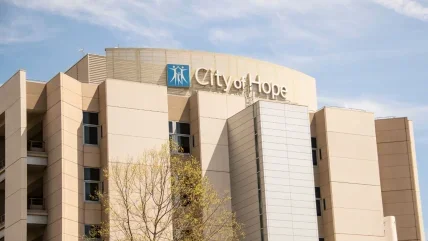
The scientists at City of Hope, a US-based cancer research and treatment organisation, found that a live biotherapeutic product called CBM588 has improved health outcomes for people newly diagnosed with metastatic kidney cancer in the Phase 1 trial.
CBM588 was given to these patients while they were in treatment with immunotherapy and enzymatic tyrosine kinase inhibitors.
City of Hope has developed a new use of the biotherapeutic product to treat cancer.
In a single-centre Phase 1 trial, 30 individuals with metastatic kidney cancer were randomly assigned to receive cabozantinib and nivolumab with or without CBM588 as initial therapy.
Stool samples were collected at baseline and after 13 weeks to analyse participants’ gut microbiomes.
City of Hope granted Osel an exclusive worldwide license for using CBM588 to enhance the effectiveness of checkpoint inhibitors in cancer treatment, including metastatic renal cell carcinoma.
Researchers from Osel and CBM588’s manufacturer, Miyarisan Pharmaceutical, also collaborated on the study.
During the trial, the researchers noted a rise in the presence of unclassified Ruminococcaceae genera, associated with enhanced clinical outcomes in immune checkpoint inhibitor studies.
CBM588’s bacterium, Clostridium butyricum MIYAIRI 588, produces butyric acid, a crucial compound for intestinal health and an immunomodulator.
The product shows changes in people’s gut microbiome, essential for improving the effectiveness of US Food and Drug Administration (FDA)-approved cancer immunotherapies.
City of Hope researchers are collaborating with the global SWOG Cancer Research Network to plan a phase 2/3 trial evaluating CBM588 and microbiome modulation in advanced cancer.
Sumanta Pal, vice chair of academic affairs in City of Hope’s department of medical oncology and therapeutics research, will co-lead the potential SWOG trial.
Pal said: “Ongoing and larger clinical trials are crucial to validate these benefits and address current challenges.
“If the positive results observed in this small trial and a previous trial with nivolumab and ipilimumab are confirmed, CBM588 could become a valuable supplement in the treatment of various cancers, particularly for patients treated with immune checkpoint inhibitors.”
The cancer research and treatment establishment is accelerating research on gut health’s impact on immune therapies like CAR T cell therapy.






